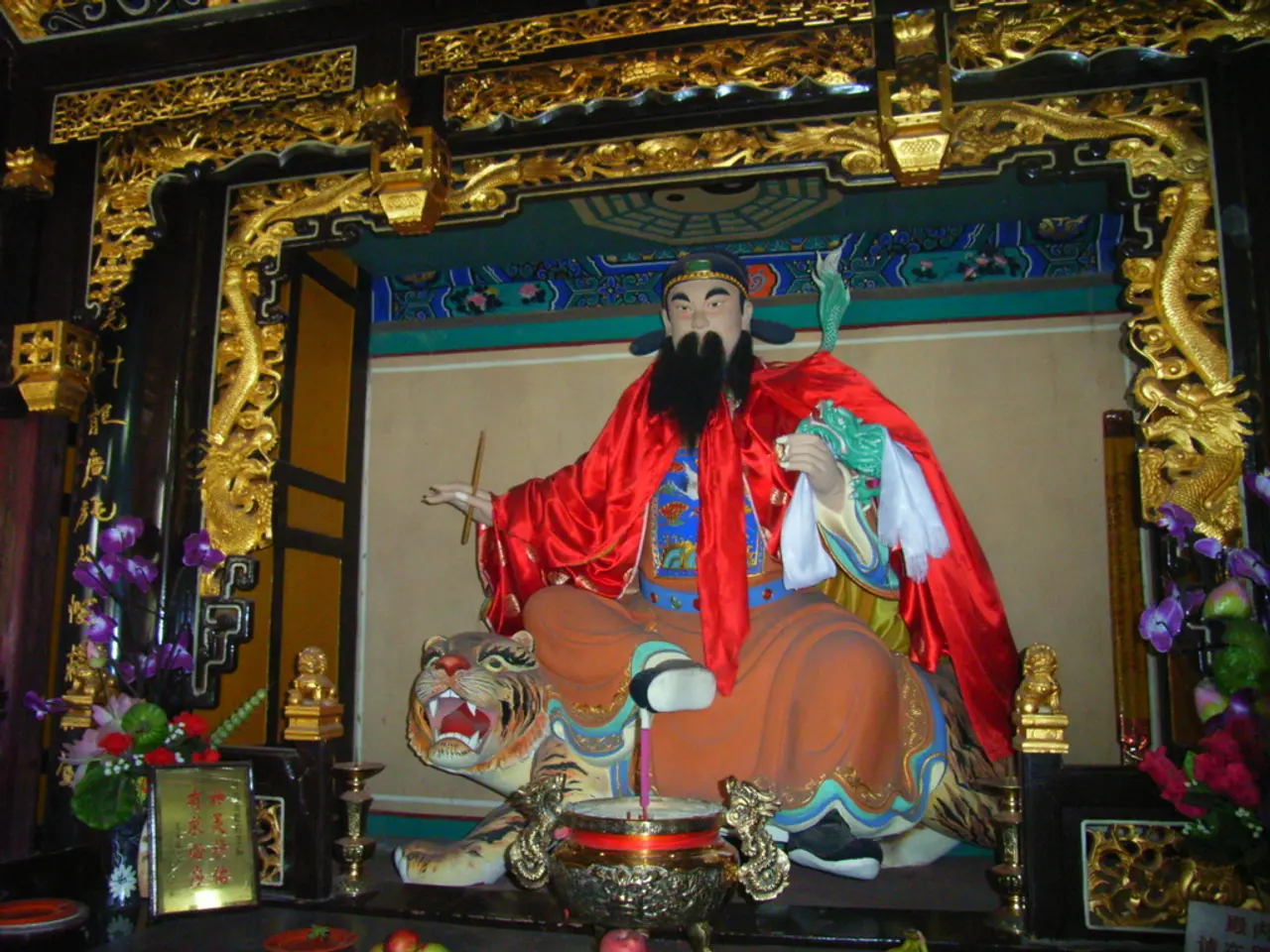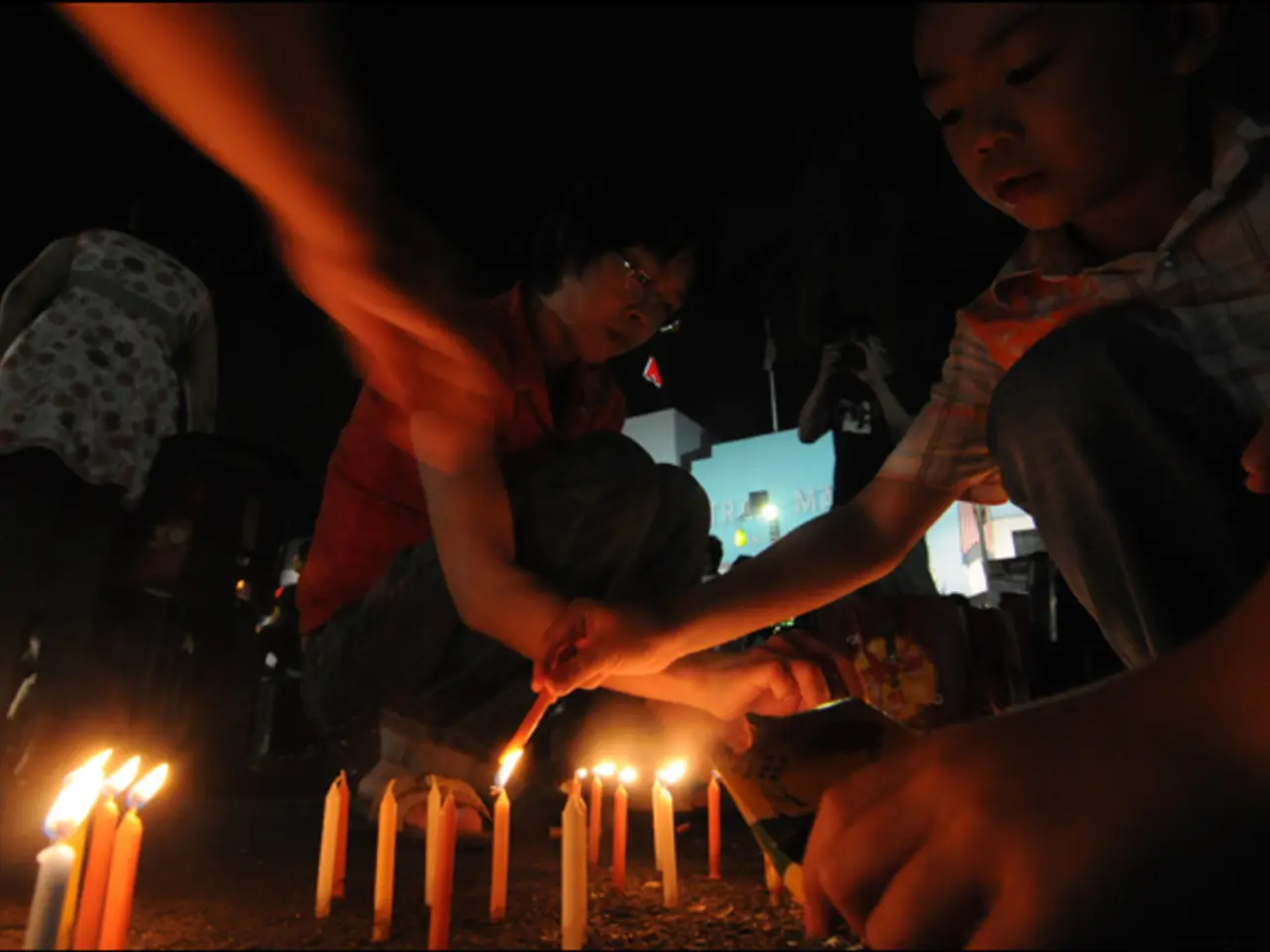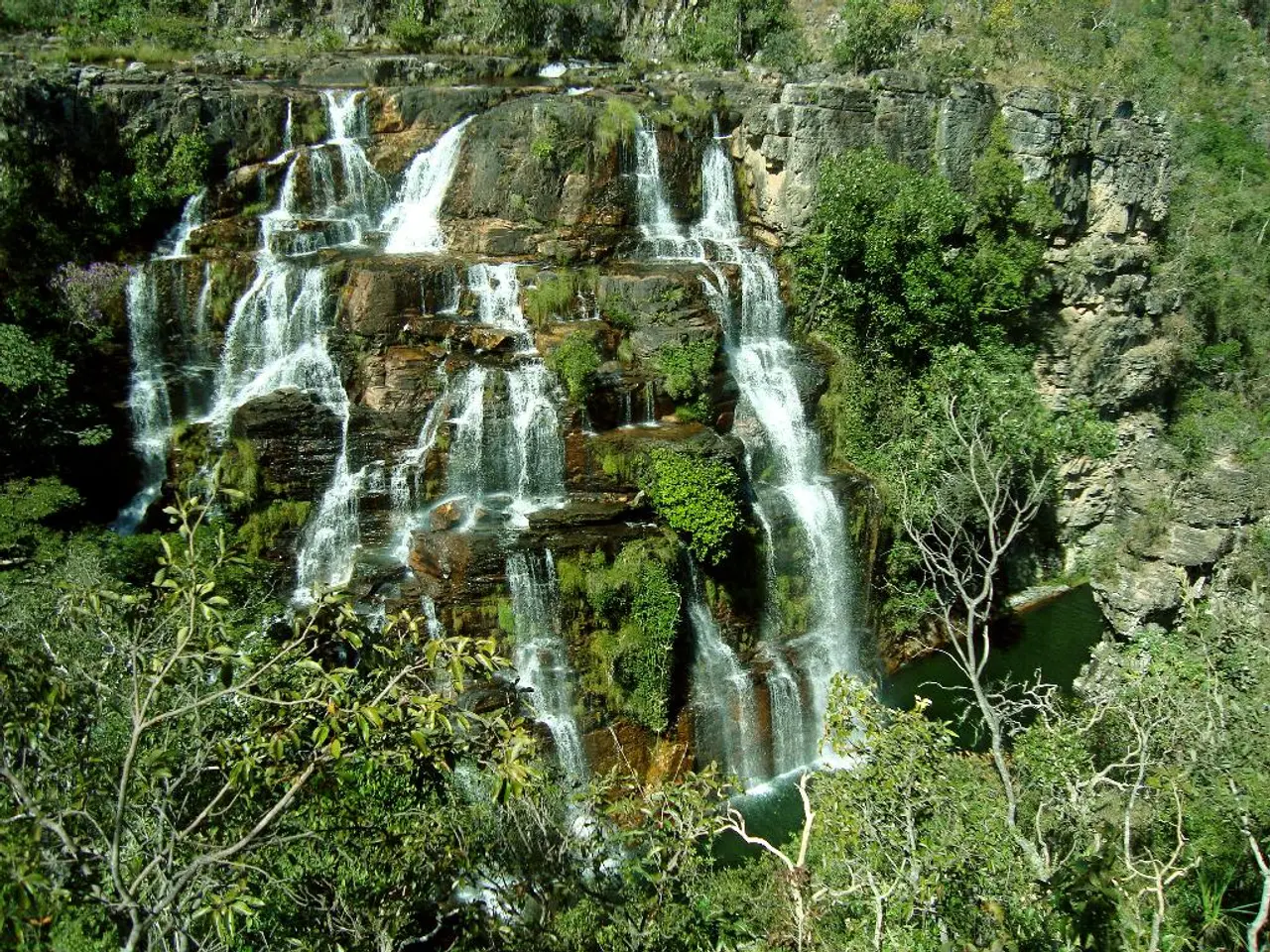The spiritual leader, Dalai Lama, proposes an advancement in relations with China.
In a significant development, the Dalai Lama has declared that the authority to recognise his future reincarnation rests solely with the Gaden Phodrang Trust in India. This statement directly challenges China's attempts to control the selection of the next Dalai Lama, a matter that has long been a source of contention between Tibetan exiles and the Chinese government.
Speaking at a religious conference, the Dalai Lama emphasised that the selection of his successor should follow traditional Tibetan Buddhist procedures, involving consultation with heads of the Tibetan Buddhist traditions and trusted Dharma Protectors linked to the lineage of the Dalai Lamas. Notably, he also stated that the next Dalai Lama "can be of any gender," reflecting a potentially broader approach to succession.
China, which has historically sought to assert authority over Tibetan Buddhist institutions, including the reincarnation process, aims to influence Tibet's spiritual leadership. By affirming that the Gaden Phodrang Trust in India—not the Chinese government—will oversee the reincarnation process, the Dalai Lama's statement may impede Chinese control over his succession and preserve the traditional Tibetan Buddhist autonomy in this matter.
In response, China is likely to reject any selection made outside its influence and might declare its own candidate, continuing the long-standing conflict over the legitimacy of Tibetan spiritual authority. This sets the stage for a potential spiritual and political confrontation between Tibetan exiles and the Chinese government regarding the Dalai Lama's succession.
The reincarnation process of the Dalai Lama is typically conducted by the Gaden Phodrang Institute and the high lamas of the four Tibetan schools. In the past, the Dalai Lama was recognised as the reincarnation in 1937 and enthroned as the Dalai Lama in 1940, after the 13th Dalai Lama's death in 1933.
Experts believe that eventually, a child from the Tibetan community in India may be recognised as the reincarnation. If the Dalai Lama had announced the end of his institution, he would have been the last Dalai Lama, and no search for the next one would have begun. However, the Dalai Lama put an end to years of speculation that he could be the last person to hold the office of Dalai Lama.
The current Dalai Lama has been living in exile in India since his escape in 1959, stateless. In 2011, he announced that if he reached the age of 90, he would issue further instructions on his succession. The centuries-old Tibetan Buddhist institution of the Dalai Lama will continue after his death.
Notably, China has not recognised the Dalai Lama's selection of the reincarnation of the Panchen Lama, leading to the disappearance of the chosen candidate and the appointment of a government-loyal candidate in 1995. This incident underscores the ongoing tension between the Dalai Lama and the Chinese government over the reincarnation process.
In conclusion, the Dalai Lama's declaration of his successor's selection process marks a significant shift in the ongoing struggle for control over Tibetan spiritual leadership. The future will reveal whether the Gaden Phodrang Foundation will be able to maintain its authority over the process, or if China will exert its influence, leading to a potential spiritual and political confrontation.
The Dalai Lama's statement asserting that the Gaden Phodrang Trust in India, not China, will oversee the reincarnation process indicates a potential escalation in the politics of the Dalai Lama's succession, making it a topic of general-news interest.
In this context, the Dalai Lama's stance on traditional Tibetan Buddhist procedures for selecting his successor, including the potential broadening of the selection criteria, could further complicate China's attempts to exert control over the selection process, leading to potential spiritual and political confrontations.






